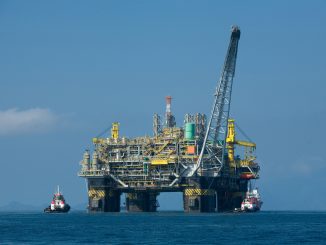
The stock market carries enormous wealth. The historical average return on the stock market was around 7%, including reinvestment of profits. This means that they have left behind other investment instruments, such as bonds, commodities and banking particles.
The stock market is always subject to inevitable corrections. Since 1950, for example, the S&P has undergone 37 corrections, of at least 10%. Usually, we have only one significant decline in the stock market every 1.9 years on average. It seems to have become a matter of time before a new stock market crash. The following events may be a major cause of this:
Trump’s Tweets: Arguably the biggest risk to the stock market is President Trump’s access to the social networking platform Twitter. The US president uses Twitter to share his thoughts several times each day, and these ideas are not always well received by the market. As an example, Trump criticized the central bank, which he believes is raising interest rates too quickly, and that the economy would be buoyant if the central bank tended to aggressively cut lending rates. Trump’s pace of work appears to hurt the country’s central bank’s credibility. It’s enough to say that Trump’s tweets move the markets, and this step is not necessarily in the upside.
US-China Trade War: Chinese President Xi Jinping does not want to abandon the competitive advantages that make Chinese goods so profitable for US companies, and allow his country to reap net trade surpluses with the United States every year. This has led to little progress in securing a long-term trade agreement between the two countries. If the United States and China escalate the trade war by imposing higher tariffs on products imported by them, it could slow both countries’ GDP growth and affect the global economy.
No deal Brexit: Former UK Prime Minister Theresa May worked for years to work out a Brexit plan. Her resignation, announced in May 2019, came after she failed three times to pass a plan in the Parliament that would lead to a 21-month transition period outside the EU. Thus, a “no deal Brexit” is a nicer way of saying that the UK will leave the EU immediately, even without trade deals. That could mean higher tariffs and costs for imports and exports across the board, and much weaker growth prospects for the UK and possibly Europe, which would not make Wall Street happy.
Failure of the US Federal Reserve: The Federal Reserve is always closely monitored by the stock market. But this is especially in focus given the Fed’s recent shift from monetary tightening to monetary easing. The central bank ended up passing nine interest rate increases of 25 basis points to the federal funds rate within three years. In late July, the Federal Reserve cut the federal funds rate for the first time in more than a decade. Wall Street is looking for the Fed to remain open to the idea of more monetary easing. If the Fed fails to do so, the stock market will almost certainly be negatively affected.
The 2020 election: The 2020 elections can play a key role in the next stock market crash. Trump being most probably a candidate has led to a major reform of corporate taxes and at least a temporary increase in profits. In other words, we were looking at another four years of a pro-business president lobbying for a weak dollar and lower interest rates. Things get a little cloudy when it comes to about 20 candidates competing for the Democratic ticket. Leading candidate Joe Biden has called for a cut in Trump’s tax reform, but he has a more moderate political record than many of his peers.
Debt crisis in Europe: For nearly a decade, debt has remained a major problem in the EU. All member states, including Spain, Portugal and Ireland, have requested bailouts, with Greece needing to be bailed out of bankruptcy. Rising debt levels have limited growth prospects across these countries and limits growth potential in much of the EU. Italy, for example, has a high debt-to-GDP ratio of 132%. Last October, the European Commission rejected Italy’s call to reduce the budget deficit for three years by 2.4%. Bringing Italy on the same page as the EU seems an impossible task, and this can cause problems for the region, and thus for the whole world.
Oil Awakening: Investors should not rule out the possibility that the oil market will send shock waves to Wall Street. More recently in 2015, the US oil and gas industry was supporting 10.3 million jobs and adding $ 1.3 trillion to the country’s annual economy. But if WTI prices fall below $50, or if natural gas prices fall, it is likely that we will see job cuts and slower growth in US GDP as a direct result of energy sector problems. Another issue is that the impact on oil markets has become tougher. The Organization of Petroleum Exporting Countries (OPEC) plans to reduce its production until sometime in 2020, the idea being that the reduction in production will raise oil prices and remove any surplus in the global supply. However, the United States now produces more oil than OPEC member Saudi Arabia and Russia as well. The Organization of the Petroleum Exporting Countries (OPEC) usually cuts supply only to some extent when the United States increases oil and gas production.




Be the first to comment